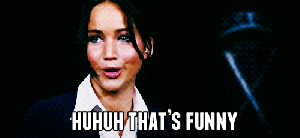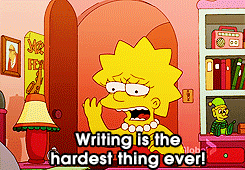So, you’ve written a novel. The first thing you need to learn is…
…how to ignore the haters.
This is an extremely hard lesson to learn.
There are two groups of haters.
1. People you don’t know.
2. People you do.
The first group is usually made up of people you will never, ever meet in person. They can range from bloggers to literary critics to readers and everything in between.
Much of the time, these people aren’t technically “haters.” They don’t hate EVERYTHING. They hate your book. It can be very difficult to separate yourself from your book, but you are not the same thing as the words you write. You’re just not.
I know sometimes that is hard to believe, especially if you write like I do, with the “only write what you know” mentality. Everything I write has elements of my personal experience. That’s just the way I roll.
So, anyway, what you need to understand is that, despite everything else, you will not win everyone over. Believe it or not, not every single person loves Harry Potter or the Hunger Games. I have a REALLY hard time believing it, but not everyone loves Jennifer Lawrence, either, even though I want to be her when I grow up.
So, yeah.
The important thing is that you like your book. That you stand behind it — and that you feel strongly enough to brush off the fact that other people don’t like it. And — and this is REALLY IMPORTANT — you accept and appreciate that fact that we live in a world where we are allowed to love or hate books and express that love or hate equally.
There are certainly bloggers who hated Taste Test — they weren’t shy about making their feelings clear. They were respectful in the sense that they never clued me into their negative reviews — I always found those on my own. No one every tweeted me a scathing review. In fact, one blogger felt BAD about giving me a bad review and we chatted briefly over Twitter. She was cool. I was cool. It’s all good.
People who hate books are critics. People who hate people are assholes. You will deal with critics and assholes, but the critics are the ones who are worth your time. You might not agree with them, but they aren’t out to hurt you.
IMO, the second group — the people you know — is a lot harder to come to terms with. But you will, and for one reason: because for every friend you lose during this journey, you will gain a new friend or a stronger friendship with an existing friend.
I won’t tell you this part isn’t really hard. I’ve had a couple of things happen to me that hurt a lot. Friends “defriended me” on Facebook because, I heard through the grapevine, that they were “tired of hearing about my writing.” Tough shit, dudes.
The harder ones for me were the friends I lost when I left my job. I’m not surprised it happened, but I was there for a decade. I really actually thought some of these people would put the effort forth because they loved me. I loved them. And I tried, really. But other than two or three really close teacher friends, I haven’t talked to anyone at my old job. I left and was wiped from the record.
There are family members who are…clueless, I guess? They either think I am a)rich, b) famous, or c) insignificant as I always was. They look at my career and see imaginary dollar signs that I will never understand. I’m not saying I don’t make a living, but this is not a Hollywood-type deal, people. It’s great if you are a working writer. You need to find satisfaction in that and that alone.
In the end, the deal is this — people will not like your writing. And people will not like you. The first one will be completely legitimate. The second one isn’t so much — at least, not as understandable.
I love my life. I love being a writer and, while I have a serious distraction issue and sometimes would rather clean the whole house twice instead of write, when it’s good, it’s very, very good. It comes like water rushing through a faucet. It’s like a gift. Every story, every character — they’re all presents just for me.
You need to find a way to ignore the people who, in the end, just don’t matter all that much. It doesn’t mean they’re worthless people – it just means that, in the grand scheme of things, they have no or little affect on your life, your writing and your success. Period.








